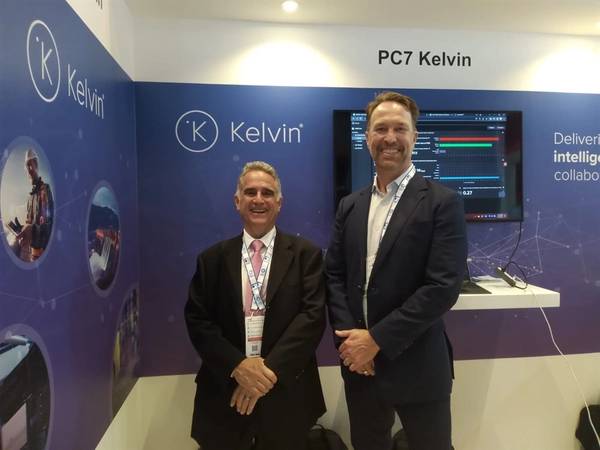
Offshore Engineer's Gary Lewis was at ADIPEC in Abu Dhabi last week, where he interviewed Peter Harding, the founder and CEO of Kelvin, a collaborative control software company that says it helps its clients reduce their carbon emissions significantly.
OE: Please give a by-the-numbers look at Kelvin today, which helps put in perspective your size, offer, and reach into the global offshore energy market?
Peter Harding: "Today we are a company that does double-digit millions in recurring revenue or cashflow break even. We've had significant impact in terms of carbon emissions. To date, we have customers who have been able to reduce their methane in one case by 74% in one field, and in another by 52%, while also being able to show very strong return on investment metrics. Our customers, on average, get a minimum of three times ROI on their work with Kelvin.
OE: Please give a short overview of the Kelvin AI and automation technology offer.
Peter Harding: What we offer is collaborative control software. This is a system that allows you to connect your existing operating technology together so that you can find and fix problems faster. We use a combination then of a maps tool to be able to see where those problems may exist amongst your existing assets and the processes that you're running. And then, we use what we call co-pilot, which is the embodiment of what the engineer would do to fix that problem. That works together to be able to then see operating efficiencies and significant reduction in carbon emissions.
OE: Decarbonization is a growing trend across industries. What do you see as the top C-suite challenges to achieve this globally?
Peter Harding: "The real challenge is one of action. Being able to take the step to move forward to embrace new solutions to solve these complicated problems. It takes people having faith that this can actually work and the bravery to move forward. Now, the truth is, these solutions are proven. They exist in the market. It is now a matter of leaders taking action and embracing that change so that they can address these critical goals and get to net zero."
OE: Case studies. Can you point to specific examples with oil majors or operators, which illustrate how Kevin is specifically tangibly driving decarbonization transformation in the offshore space?
Peter Harding: "We've been able to work with companies like BP and other majors to be able to address specific production goals where they've been able to both increase production levels, but also be able to see significant reductions in their carbon emissions. We work closely with them to empower their engineers so that they're taking those ideas to make improvements in those systems and being able to act on it. That is what allows us to work together with these majors to be able to address these significant goals.
OE: What is your outlook for growth in the offshore energy sector, both traditional oil and gas and renewables in the coming five years?
Peter Harding: "We are working with multiple offshore providers to be able to address their evolving needs. We focus again on being able to address production requirements while also being able to balance that with new sustainability objectives. We are adding new customers and being able to address new sets of challenges so that both of these needs can be addressed effectively."
OE: What new is being discussed with your clients here at ADIPEC?
Peter Harding: We focus at ADIPEC on a new product called Carbon Maps, which gives the ability to really understand at a base level where the components, the machines, the assets and the systems are actually starting to have failures. Those failures lead to leaks. Those failures lead to emissions.
And so what we look at is a much more bottoms-up approach to being able to address those problems, to be able to find them faster. Once we've done that, once you have a map, you can figure out where to go and what to do once you get there. On top of it, once you've been able to find those problems, our copilots product allows you to fix them. And so copilots are really capturing what the best engineer does on their best day and codify that into a real software solution that works at scale.